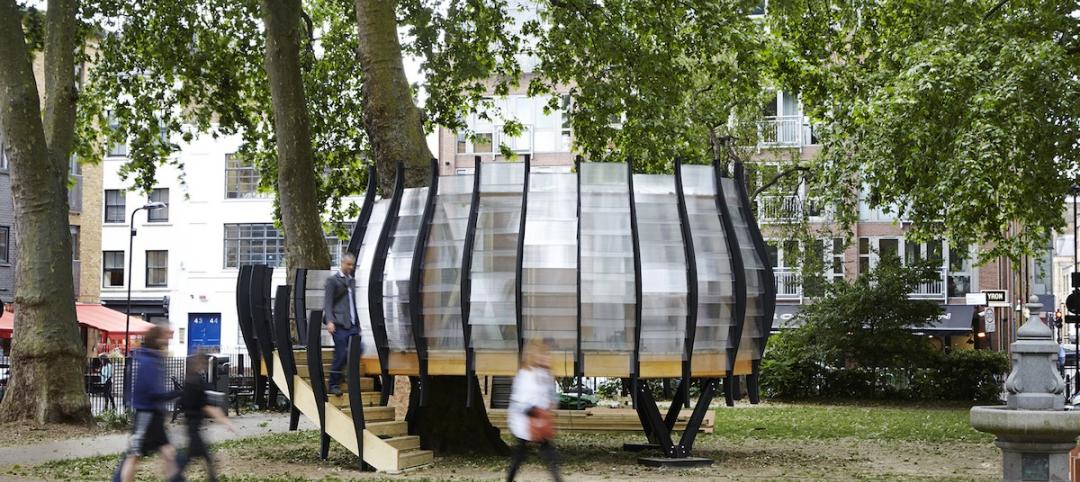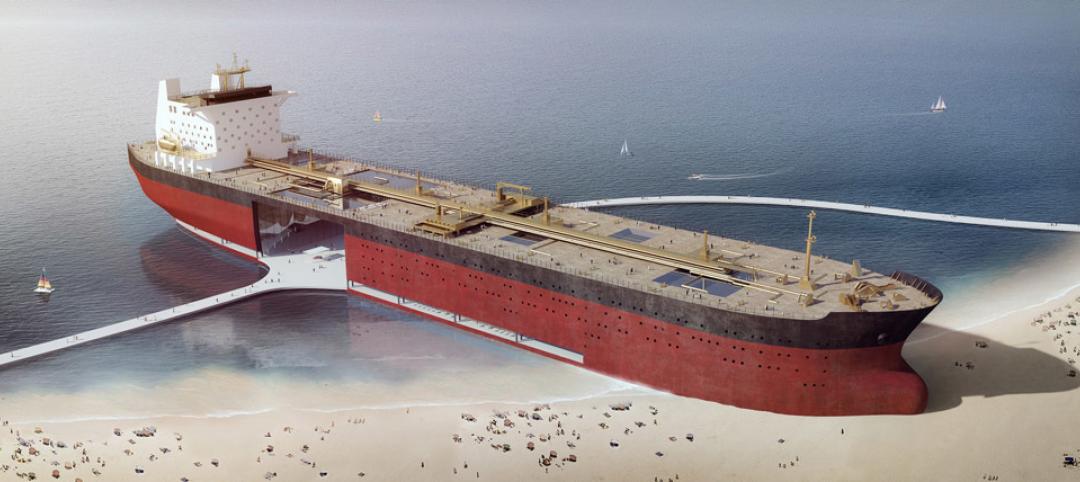In the latest chapter of the industry’s ongoing consolidation saga, two of the top 50 architecture/engineering firms, DLR Group and Westlake Reed Leskosky (WRL), are joining forces, bringing together companies with 1,000 employees in 26 locations worldwide.
This is the second addition to its stable in the last 14 months for Omaha, Neb.-based DLR. In July 2015, it acquired SORG Architects, which works primarily in the Washington D.C. area, and will now operate as DLR Group|Sorg|Westlake Reed Leskosky.
The 112-year-old WRL, founded by the youngest son of U.S. President James Garfield, will extend DLR’s presence into such eastern metros as Cleveland (WRL’s headquarters city), New York, and Charlotte. “Strategically, this increases the geographic reach of both firms,” said Griff Davenport, chief executive of DLR, which turns 50 this year.
Paul Westlake, FAIA, FACHA, WRL’s Managing Principal, added that there is little overlap of practice type specialization or clientele between the two firms, and that he sees “lots of opportunities” for DLR to fatten its nine practices on these new markets. Right before the deal was announced, Westlake informed a university president about the merger, “and he said that the university had three projects on the horizon that fit DLR’s specialties.”
Westlake considered DLR’s K-12 practice to be “the best in the country,” whereas Davenport singled out WRL’s Cultural and Performing Arts practice, a sector where the two firms had worked together on projects previously.
Other practices for the combined firm include Energy Services, Hospitality, Healthcare, Justice, Preservation, Retail, Mixed-Use, Sports, and Office.
As a Senior Principal of the combined company, Westlake will lead its Culture and Performing Arts Studio, and become a member of DLR Group’s board of directors. He told BD+C that he felt this change would return him to his roots as a designer, as well as take full advantage of his experience growing a company. (Westlake opened WRL’s second office, and several others subsequently.)
The merger also provides “ownership” opportunities to WRL’s employees, as DLR is 100% employee-owned, said Davenport.
He and Westlake said the two firms have recognized each other as industry “leaders” for a while. About a year ago, they started talking about working together in some capacity, which evolved into more substantive discussions about merging.
“As we went to through the process it became readily apparent that within our firms is a clear cultural alignment,” said Davenport. Westlake said that the eight or nine people with equity positions at WRL were “excited” about a merger. And a month before the deal consummated, the two companies brought together their respective team leaders in what Davenport called “a cultural exchange,” which turned out better than expected. “There was chemistry beyond just business.”
Several of WRL’s executives assume key management roles in the transition. Phil LaBassi, FAIA, FACHA, a Principal and owner at WRL, will become Global Healthcare Leader and direct that practice for the combined firm. Matt Janiak, AIA, will lead the operations in the Cleveland and New York offices. Paul Siemborski, AIA, will lead business developing and marketing for the Northeast Region. And Glenn Johnson will direct the DLR Group|Westlake Reed Leskosky office in Charlotte.
Tom Gallagher, AIA, who was made an owner at WRL in February, will continue to direct the DLR Group|Westlake Reed Leskosky New York office and lead a studio specializing in lighting and museum design. Gallagher will also lead projects in Asia.
Davenport said his company is keeping its eyes open for new growth avenues that might include acquisitions, which “will continue to be a strategy we consider. Every so often, a firm like WRL comes along.”
Related Stories
Architects | Jun 22, 2015
NCARB adopts alternative for certification of foreign architects
The change, effective July 1, 2016, will replace the current BEFA Program’s requirements, eliminating the committee dossier review and the need to document seven years of credentialed practice in a foreign country.
BIM and Information Technology | Jun 21, 2015
11 tips for mastering 3D printing in the AEC world
Early adopters provide first-hand advice on the trials and tribulations of marrying 3D printing with the science of building technology.
Events Facilities | Jun 19, 2015
4 ways convention centers are revamping for the 21st century
Today's convention centers require more flexible spaces, the ability to blend virtual and in-person events, and meaningful sustainability, writes Skanska's Tom Tingle.
Engineers | Jun 18, 2015
Architecture and engineering profit margins deliver third consecutive year of growth
Operating profits of AE firms have reach their highest level since 2009, according to a new report by PSMJ Resources.
Architects | Jun 17, 2015
Starchitects' napkin sketches raise thousands for San Diego’s AIAS chapter
Prominent architects who submitted a total of 23 napkin doodles were Zaha Hadid, Cesar Pelli, Robert Venturi, Massimiliano Fuksas, Thom Mayne, and Bjarke Ingels.
BIM and Information Technology | Jun 16, 2015
What’s next for 3D printing in design and construction?
The 3D printer industry keeps making strides in technology and affordability. Machines can now print with all sorts of powderized materials, from concrete to chocolate.
Office Buildings | Jun 12, 2015
Houston's energy sector keeps office construction humming
Colliers International projects continued expansion this year in its quarterly report on national office market.
Smart Buildings | Jun 11, 2015
Google launches company to improve city living
The search engine giant is yet again diversifying its products. Google has co-created a startup, called Sidewalk Labs, that will focus on “developing innovative technologies to improve cities.”
Office Buildings | Jun 11, 2015
Pop-up tree-office opens in London borough of Hackney
London's Hackney borough welcomed a new kind of workspace to Hoxton Square—the TreexOffice.
Cultural Facilities | Jun 10, 2015
Artists turn oil tankers into architecture
Four Dutch artists propose transforming tankers into monuments with mixed-use space.

















